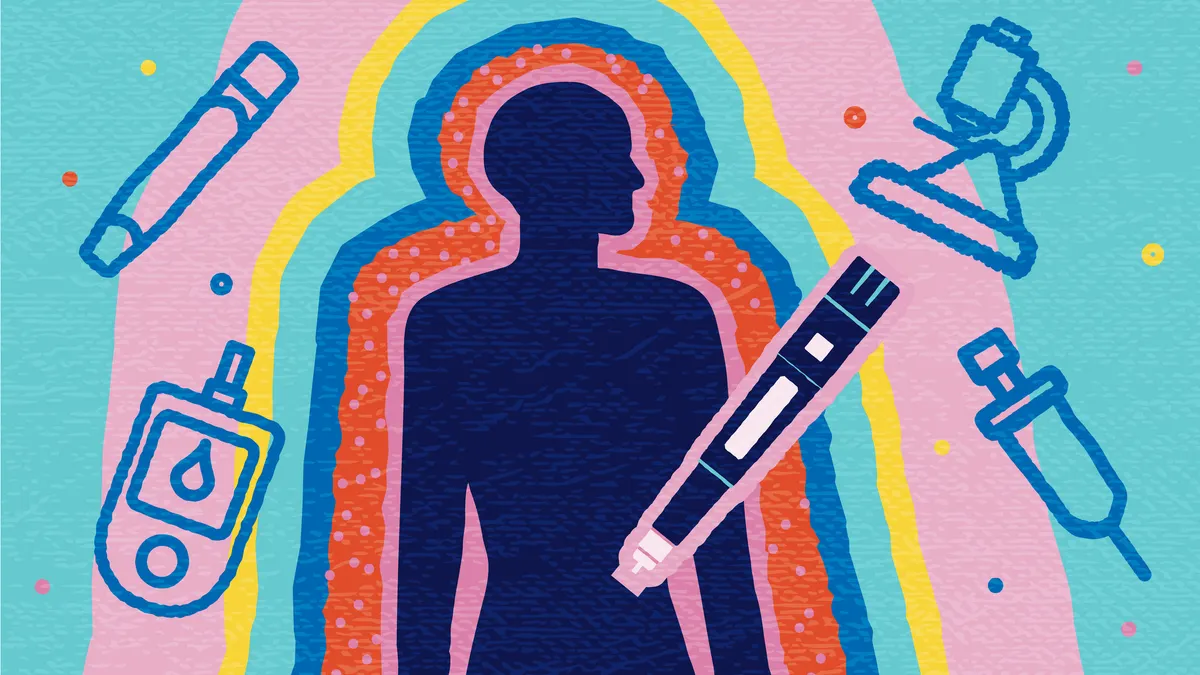The concept of decentralized clinical trials (DCTs) preceded the COVID-19 pandemic as technology allowed for more advanced data collection, and the health crisis poured fuel on the fire with patients unable to physically visit the clinic. But as patients now return to physicians' offices, some clinical trial vendors aren't so sure the phrase really defines how the digital revolution has taken shape in the last few years.

Leaders at the cloud-computing healthcare company Veeva do believe DCTs are important, but they would rather stop using that term as the data collection process evolves past the pandemic. Another way to look at these trials is as a broader move toward digitization while also maintaining a clinical presence, Tim Davis, vice president of strategy at MyVeeva for Patients said in an interview during the company's R&D summit in October.
"I think my approach to using the decentralized term is — it just doesn't work anymore because people are going back to clinics, clinics are wanting to get that relationship back — but they're looking to take paper out," Davis said. "One thing that tends to have stayed is remote monitoring and remote auditing — people are OK doing that, but the clinical trial is still happening at the site."
Davis said the future of digitization is such that clinics will still exist, but that the choice lies with the patient whether they can or want to visit in person or remotely. In the same way employees working from home during the pandemic didn't result in the complete dissolution of the office but rather a way for remote and in-person employees to work together more seamlessly, so too can clinical trials reach a more hybrid solution.
"I have a full-on allergic reaction to the phrase DCT — I think the sooner it has been struck from our vocabulary, the better."

Richard Young
Vice president, clinical data management suite, Veeva
"The only way you can do that is by designing from the start one of the things we learned with COVID … (which is) it starts from insights from the patient perspective, right through to all of our products being configured in that way," Davis said. MyVeeva is part of the company's suite of applications designed with the patient in mind to make trial participation more accessible.
No matter the phrase, hybrid digital trials and DCTs have grown in number, according to a survey report from the contract research organization PPD. From 2019 to 2021, the number of traditional, on-site clinical trials fell to 41% in early 2021 from 69% in 2019. In the same time period, hybrid digitally enabled trials rose from 20% to 39%, and fully decentralized trials rose from 11% to 20%.

But Davis' colleague at Veeva, Richard Young, vice president of the company's clinical data management suite, had a more visceral reaction to the hype of DCTs.
"I have a full-on allergic reaction to the phrase DCT — I think the sooner it has been struck from our vocabulary, the better," Young said. "Another word — digital — sets the right mindset. It's about bringing data together seamlessly."
The role of digital trials is creating a "persona" of each patient through data whether they want close personal care or not and making sure that digital profile can translate to match the bigger picture of the trial, Young said.
And some pharmas are looking at that bigger picture to establish how the patient can approach clinical trials in the future.

"Not every patient may want to have a fully decentralized trial offer," said Boehringer Ingelheim's head of global clinical development and operations Uli Broedl in an interview at the Veeva summit. "We most likely see hybrid solutions, and if you think down the road, hopefully we arrive at a point in time that patients have the choice and say, 'Yes, I want to do this using my iPad, or please send me the mobile nurse, or I go to the local pharmacy or I want to truly see my physician because we have a trust-based relationship."
With this choice comes a friendlier and more accessible experience for all patients, Broedl said.
"Then you offer in essence a true patient journey within a clinical trial," Broedl said.
Of course, Veeva has a suite of applications to sell to companies conducting clinical trials, so there's a vested interest in keeping that sales base. But for Davis, the marketing of DCTs as such is beyond what those services actually provide.
"I would love as an industry to come to a common agreement and a common understanding, because as partners and vendors and competitors, we're building to a common goal, but we're not doing that today," Davis said. "There's genuine marketing and I think there's disingenuous marketing, and that's why I do take issue with the phrase DCT."
For Young, the understanding between those two schools of thought surrounding DCTs — whether that phrase encompasses what they really are — comes down to "humility and listening."
"There's a reason I have certain views on how certain things are being presented, and it's not because I just want to create a new term or a new marketing — it's because I want honest dialogue," Young said. "If we have an honest dialogue, competitors become partners."




















